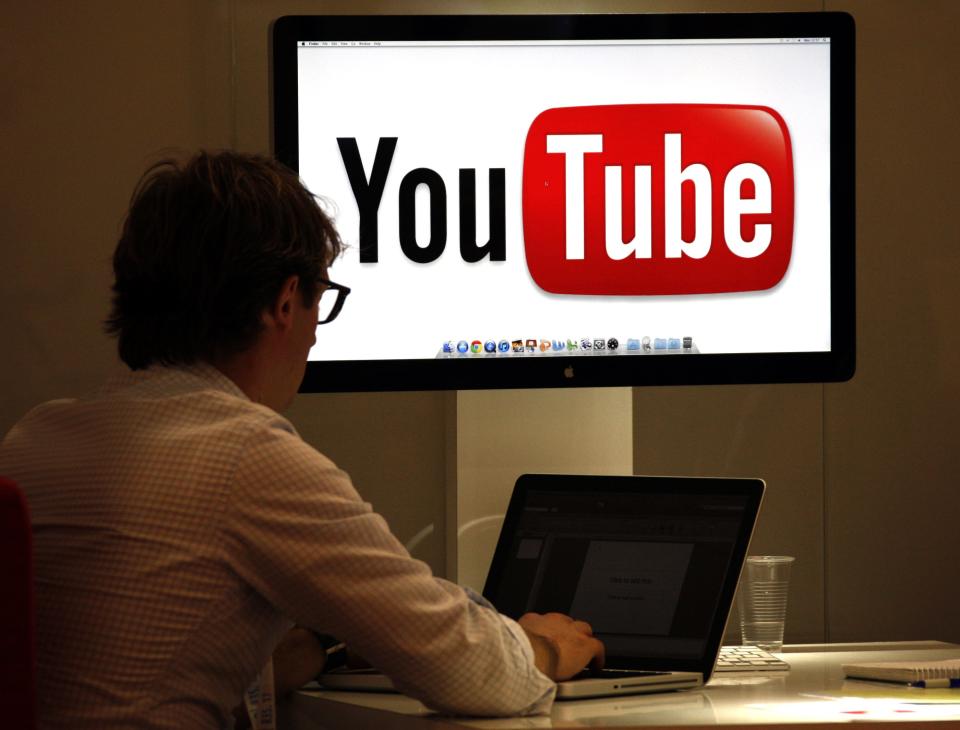YouTube’s talent isn’t going to migrate to Facebook

REUTERS/Eric Gaillard
A visitor is seen at the You Tube stand during the annual MIPCOM television programme market in Cannes, southeastern France, October 3, 2011.
The biggest advantage Facebook has over YouTube is the ability to drive exposure to videos. The social network grew video from 1 billion views per day to 4 billion views per day in the span of about six months from September to the end of March. The passive News Feed lets Facebook serve up just about anything it chooses to its users — and it wants them to see videos.
But if Facebook wants to attract top content makers from Google’s YouTube, it needs to overcome one huge obstacle: YouTube stars have spent years developing a following on YouTube, not Facebook. As a result, posting videos on Facebook is almost always less effective in reaching as many viewers as YouTube.
Facebook knows firsthand just how valuable a network can be. It’s the thing that keeps competitors from simply copying all of its features and succeeding. If there aren’t a lot of users, the social network gets boring pretty fast.
And while Facebook’s network is substantial, YouTube stars naturally build their networks on YouTube through subscriptions. PewDiePie, which has the description “businessy stuff,” for example, has more than 38 million subscribers on YouTube. For him to build up a similar number of followers on Facebook would take a lot of time, and a lot of work.
When a YouTube star posts videos to Facebook, it reaches far fewer people, on average. In fact, a recent survey from Tubular Labs found that, of the 68% of top YouTube content producers who posted a video on Facebook in May, exactly 0% of them generated more views on the social network compared to the video site.
Facebook recently rolled out Instant Articles, which has some publishers posting as many as 20 articles to its platform on a daily basis. The offer for Instant Articles is basically the same for print publishers as Facebook video is for YouTube video makers. Let us host your content — it will load faster, and more people will see it.
Of course, there are some key differences that make Instant Articles a much easier sell for Facebook. First, publishers receive tons of traffic from Facebook already. Simply changing the format for Instant Articles won’t affect the publishers’ reach. As the survey from Tubular Labs shows, that’s not the case for top YouTube creators.

Jason Kempin/Getty Images for Nickelodeon
(L-R) Viner superstar Josh Peck, cast member of Nickelodeons Game Shakers Kel Mitchell, YouTube sensation GloZell, a fan, cast member Thomas Kuc, a fan, and cast members Benjamin Lil P-Nut Flores Jr., Madisyn Shipman, and Cree Cicchino speak onstage at VidCon on July 25, 2015 in Anaheim, California.
Second, reading articles on a mobile browser is a major pain. Facebook solves that by integrating Instant Articles into its app, ensuring the user experience is excellent. YouTube’s mobile app, however, is excellent, and makes finding videos to watch extremely easy and efficient.
There are several major obstacles in the way of Facebook attracting top YouTube talent. Facebook needs to help the talent it wants to attract establish an audience on its network. That could come via free advertising, or some other form of free promotion.
More importantly, Facebook needs to provide YouTube creators some incentive to publish videos on its platform. The idea that Facebook offers extended reach doesn’t hold water when zero videos there receive more views than the same videos on YouTube. For many, it’s all about the money, and Facebook is just starting to test the waters of revenue sharing with specific content partners.
Finally, Facebook needs to offer a Content ID system for publishers. Freebooting — taking online media and rehosting it on your website — has become a major problem on the social network. If Facebook can enable creators to capitalize on the popularity of other Pages on Facebook through some sort of revenue-sharing agreement, it could find a lot more success attracting top content creators to its platform. But getting them to leave YouTube may be nearly impossible, considering the established audiences for many top creators on the site.
At the recent Berkshire Hathaway annual meeting, Warren Buffett admitted this emerging technology is threatening his biggest cash-cow. Buffett’s fear can be your gain. Only a few investors are embracing this new market, which experts say will be worth over $2 trillion. Find out how you can cash in on this technology before the crowd catches on, by jumping onto one company that could get you the biggest piece of the action.
More from The Motley Fool:
What Apple, Inc. Said About China on Its Latest Earnings Call
National Instruments Ekes Out an Earnings Gain Despite Falling Sales
This article originally appeared at The Motley Fool. Copyright 2015. Follow The Motley Fool on Twitter.
NOW WATCH: PUTIN: People like Sepp Blatter deserve a Nobel Prize
The post YouTube’s talent isn’t going to migrate to Facebook appeared first on Business Insider.

 Yahoo Finance
Yahoo Finance 
